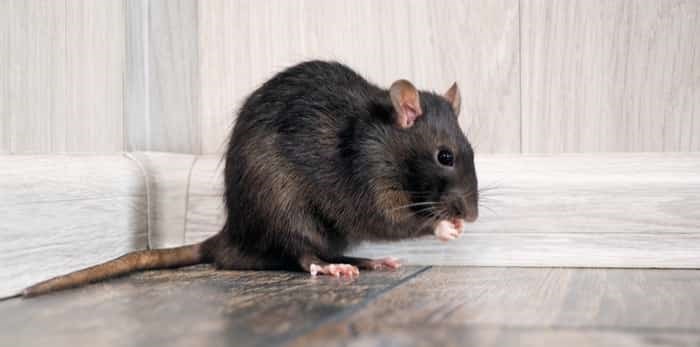 Photo: Rat in the house on the floor / Shutterstock
Photo: Rat in the house on the floor / Shutterstock
For the third year running, Vancouver was named the rattiest city in Canada.
It comes as little surprise to people who live here - rodents regularly scoot across city streets, climb up trees, and even hop up on cars - they are virtually everywhere. In fact, rats made headlines in Vancouver numerous times this year.
From the rat soup scandal at the Crab Park Chowdery to the hairy rat that was allegedly trapped in a 7-Eleven fridge, there was no shortage of absurd stories starring the urban-dwelling scoundrels. However, it's a different story when the four-legged creatures find their way into our homes.
While Vancouver enjoyed a hot, sunny summer, September has been rather wet. And as the weather continues to cool, critters will venture indoors in search of shelter from the elements.
Of course, you can always wait to deal with them once they're inside, but that's not advised. Not only are they notoriously hard to get rid of, but they also breed fast. According to Orkin Canada, one pair of mice may produce 200 offspring in just four months - yikes. In addition, the pest-control company states that each mouse can contaminate far more food than it eats.
Orkin adds that home-owners should, "trim back all vegetation from the side of the building and install a gravel strip three-quarters of a metre wide around the building’s immediate exterior.'
"Since rodents do not like to be out in the open, this buffer will discourage them from coming too close to buildings."
So, in order to keep the rats away, you need to think like one; the little mammals don't like to be exposed, and heavy shrubbery makes them feel safe. Furthermore, any long branches close to your home should be trimmed back.
Take steps to rodent-proof first:
- Keep food indoors: Store people and pet food in rodent-proof containers.
- Prevent entry: Seal gaps or holes big enough for mice or rats in walls, foundations, sheds and crawl spaces.
- Keep clean: Tidy up messes and spills, outdoor waste and materials to prevent nesting.
Remember: mice can squeeze through a hole that's the size of a dime, so it pays to be extremely vigilant when "rodent-proofing" your home.
Orkin offers a good rule of thumb: "If you can fit a pencil into a crack or hole, it should be sealed with weather-resistant caulk or foam."
While rats and mice are in search of food and shelter, the animals are also thirsty. A "sweaty" HVAC or soda machine may perspire and be attractive to them. As a result, these machines should be repaired by a maintenance professional if necessary. Standing water around the exterior the building will also attract rodents, and should be removed.
The City of Vancouver has a guide on how to identify a rat or mouse infestation including keeping an eye out for burrows, noises, droppings and chew marks. The most common rodents in the Vancouver area are the Norway (brown) rat, the roof (black) rat and the house mouse.
Visit here for our guide on how to handle living in B.C.’s rattiest city (the humane way).


